By: @inceipek1
The saying "you are what you eat" holds more truth than we might realize, especially when it comes to our mental health. The connection between nutrition and mental well-being is a complex and intricate web, with scientific research increasingly highlighting the profound impact that our dietary choices can have on our mood, cognition, and overall mental health.
The Gut-Brain Axis: A Bidirectional Communication Channel
Recent research has unveiled a remarkable interconnection between the gut and the brain, known as the gut-brain axis. This bidirectional communication system involves a complex network of biochemical signals and neural pathways that link our digestive system to our central nervous system. The gut-brain axis plays a crucial role in regulating mood, emotions, and cognitive function. The composition of the gut microbiota, the collection of microorganisms residing in our digestive tract, has been found to impact neurotransmitter production, inflammation levels, and even brain structure.
Nutrients for Neurotransmitters
Certain nutrients play a pivotal role in the synthesis and regulation of neurotransmitters, the brain chemicals that influence mood and behavior. For instance:
-
Serotonin Production: Serotonin, often referred to as the "feel-good" neurotransmitter, is synthesized from the amino acid tryptophan. Foods rich in tryptophan, such as turkey, chicken, dairy products, nuts, and seeds, can support serotonin production and help regulate mood.
-
Omega-3 Fatty Acids: Omega-3s, found in fatty fish like salmon, walnuts, and flaxseeds, are essential for brain health. They contribute to the structure of brain cell membranes and play a role in reducing inflammation, which is linked to depression and other mental health disorders.
-
B Vitamins: B vitamins, including folate, B6, and B12, are vital for nerve function and the synthesis of neurotransmitters. Leafy greens, whole grains, eggs, and lean meats are excellent sources of B vitamins.
Inflammation and Mental Health
Chronic inflammation has emerged as a significant contributor to mental health disorders such as depression and anxiety. A diet rich in processed foods, sugary snacks, and unhealthy fats can trigger inflammation, affecting brain function and mood regulation. On the other hand, an anti-inflammatory diet rich in fruits, vegetables, whole grains, lean proteins, and healthy fats can help mitigate inflammation and promote better mental health.
The Impact of Micronutrients
Micronutrients, including vitamins and minerals, are essential for various physiological processes, including brain function. Deficiencies in certain micronutrients have been linked to an increased risk of mental health issues. For example:
-
Vitamin D: Adequate vitamin D levels are associated with a lower risk of depression. Exposure to sunlight and consuming vitamin D-rich foods like fatty fish, fortified dairy products, and eggs can help maintain optimal levels.
-
Magnesium: Magnesium plays a role in relaxation and mood regulation. Sources of magnesium include leafy greens, nuts, seeds, and whole grains.
-
Zinc: Zinc is involved in neurotransmitter function and has been linked to alleviating symptoms of depression. Foods like oysters, lean meats, legumes, and nuts are good sources of zinc.
As our understanding of the intricate connection between nutrition and mental health deepens, it becomes evident that what we eat plays a significant role in shaping our emotional well-being and cognitive function. A well-balanced diet, rich in nutrients that support brain health, can contribute to a positive mood, enhanced cognitive performance, and a reduced risk of mental health disorders. By making conscious and informed dietary choices, we have the power to nourish not only our bodies but also our minds, fostering holistic well-being and a brighter outlook on life.
References:
Dinan TG, et al. (2015). Collective unconscious: How gut microbes shape human behavior. Journal of Psychiatric Research: https://www.ncbi.nlm.nih.gov/pubmed/25448481
Young SN. (2007). How to increase serotonin in the human brain without drugs. Journal of Psychiatry & Neuroscience: https://www.ncbi.nlm.nih.gov/pubmed/17476317
Grosso G, et al. (2014). Role of omega-3 fatty acids in the treatment of depressive disorders: A comprehensive meta-analysis of randomized clinical trials. PLoS One: https://www.ncbi.nlm.nih.gov/pubmed/24705568
Kennedy DO. (2016). B Vitamins and the Brain: Mechanisms, Dose and Efficacy—A Review. Nutrients: https://www.ncbi.nlm.nih.gov/pmc/articles/PMC4772032/
Miller AH, Raison CL. (2016). The role of inflammation in depression: from evolutionary imperative to modern treatment target. Nature Reviews Immunology: https://www.ncbi.nlm.nih.gov/pubmed/27188358
Kjærgaard M, et al. (2019). Vitamin D in the General Population of Young Adults with a Focus on Gender Differences. The Danish Health Examination Survey (DANHES): https://www.mdpi.com/2072-6643/11/11/2628
Tarleton EK, et al. (2017). Role of magnesium supplementation in the treatment of depression: A randomized clinical trial. PLoS One: https://www.ncbi.nlm.nih.gov/pmc/articles/PMC5452159/
Swardfager W, et al. (2013). Zinc in depression: A meta-analysis. Biological Psychiatry: https://www.ncbi.nlm.nih.gov/pubmed/22840616















